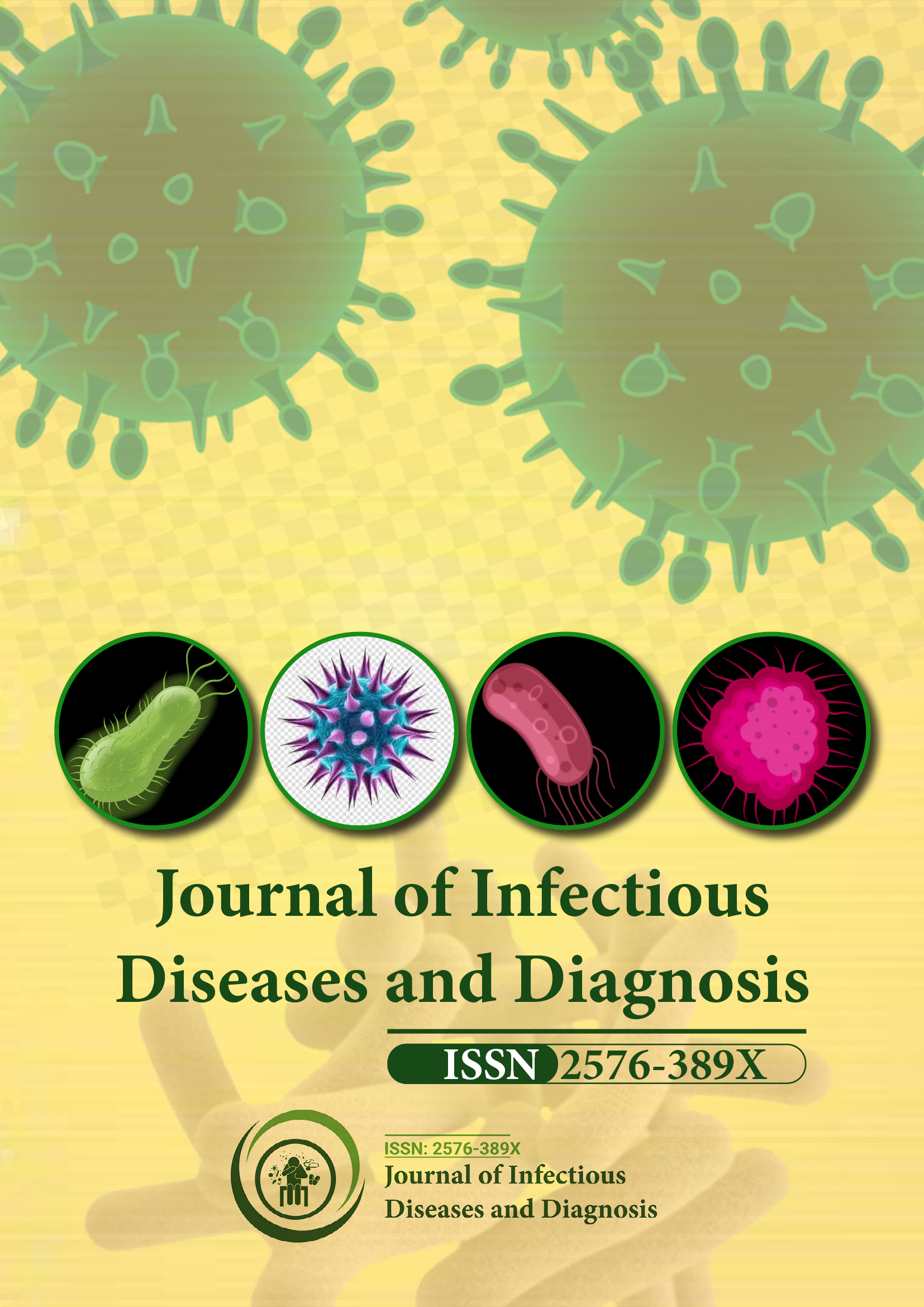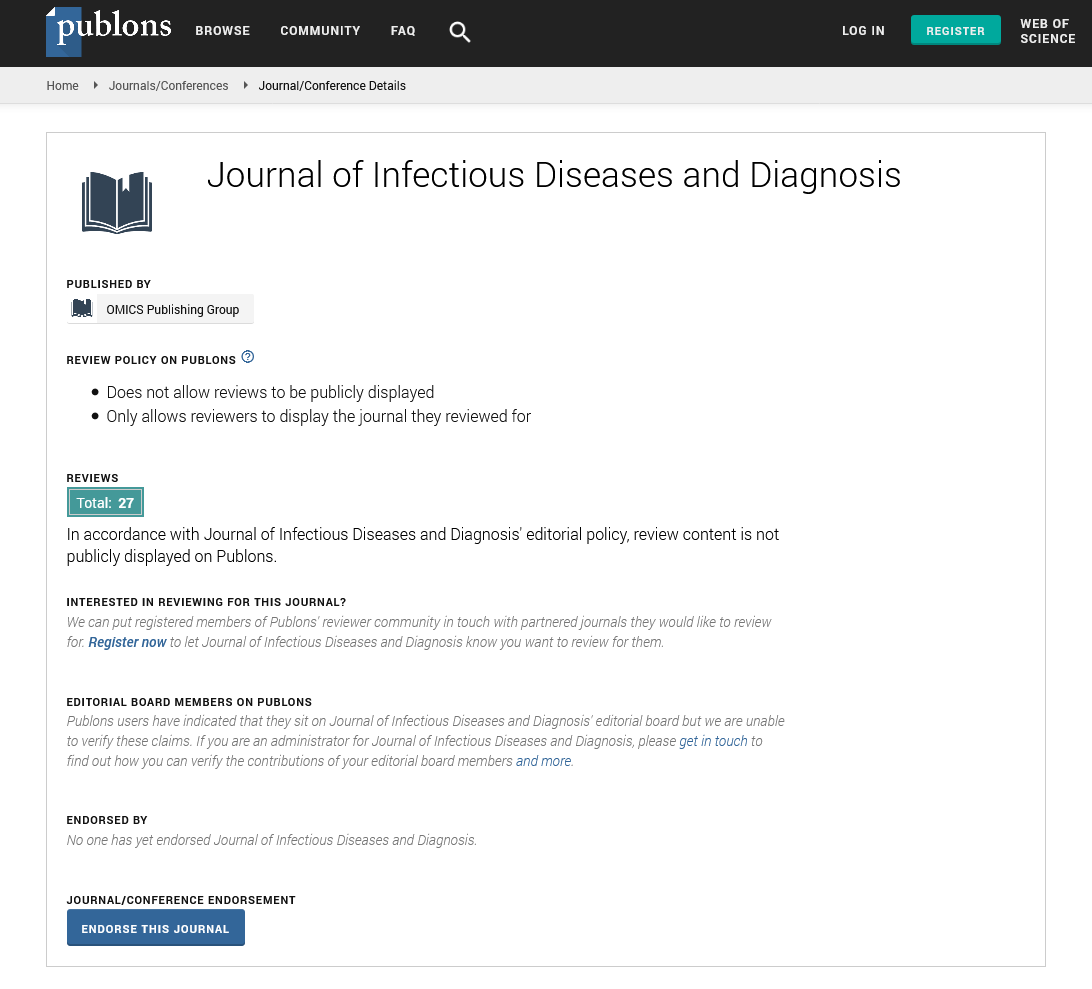Indexed In
- RefSeek
- Hamdard University
- EBSCO A-Z
- Publons
- Euro Pub
- Google Scholar
Useful Links
Share This Page
Journal Flyer

Open Access Journals
- Agri and Aquaculture
- Biochemistry
- Bioinformatics & Systems Biology
- Business & Management
- Chemistry
- Clinical Sciences
- Engineering
- Food & Nutrition
- General Science
- Genetics & Molecular Biology
- Immunology & Microbiology
- Medical Sciences
- Neuroscience & Psychology
- Nursing & Health Care
- Pharmaceutical Sciences
Abstract
Accuracy of Malaria Diagnosis by Microscopy and RDT Methods amongst Pregnant Women Attending Antenatal Clinic in Eket
Ekom Ndifreke Edem, Emem Okon Mbong, Sajjad Hussain
The global impact of malaria has spurred interest in developing effective diagnosis strategies not only for resource on limited areas where malaria is a burden on society, but also in developed countries where malaria is a diagnostic expertise is often lacking. Malaria diagnosis involves identifying malaria parasite or antigens product in patient blood. Although this may seem simple, the diagnostic accuracy is subject to many factors, including expertise, sensitivity and effectiveness of diagnostic tools utilized. This study was conducted to ascertain whether the use of microscopy and Rapid Diagnostic test (RDT) methods influences accuracy of malaria diagnosis on pregnant women attending antenatal clinic in Eket. Forty (40) consenting pregnant women were recruited in the study. Blood samples collected through venous procedure were analyzed microscopically and SD Bioline Malarial test kits. Socio-demographic data showed 50% were participants between the age of <18-34 years and 40% were ≥ 35 years. Fourteen (35%) of the participants had tertiary education, 25% had primary and secondary education each and 15% had no formal education. Thirty (75%) samples were positive to the Ab-Ag RDT test with 10 (25%) samples being negative, while 24 (60%) samples were positive to microscopy with 16 (40%). This study revealed that both rapid diagnostic test is more accurate in diagnosis of malaria than microscopy and this could be because of some human factor during microscopy processes.
Published Date: 2020-09-01; Received Date: 2020-08-12

